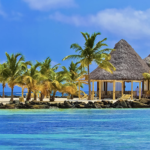What's the weather like in Jerusalem in February
Temperature
February brings slightly warmer temperatures than January, the coldest month of the year. The mild winter continues with the average daily temperature this month being 9°C (48°F). The average daily high in February is approximately 13°C (55°F) in the middle of the day, while the lows at night drop down to 5°C (41°F). According to recent records, the highest temperatures have reached up to 26°C (79°F) while the low gone below freezing to -7°C (19°F), though these temperatures are rare.
Rainfall
February ties January as the wettest month of the year for Jerusalem. Nearly half the days of the month will be rainy, with an average of 12 days being the norm. The city will receive a total of approximately 90 mm (about 3.5 inches) of rain throughout the month.
Sunshine Hours
With the rain and shorter days of winter, February typically have just seven hours of sunlight each day. This is the same amount of sunshine as January.
Wind
Winds in Jerusalem blow at about 12 km/hour (8 miles/hour) during February. The cool wind is combined with nearly 50 percent cloud coverage and high humidity at 70 percent. Visitors will need to pack for a variety of weather conditions, and layers may be the most helpful as the weather can change throughout the day.
Sea Temperature
In February, the Mediterranean Sea has finally cooled to its lowest point after a couple months of winter. With an average water temperature of 17°C (63°F) throughout the month, February and March are tied for the coldest months of the year for the Mediterranean Sea water at Tel Aviv. The Dead Sea, on the other hand, warms just slightly above January to 18°C (64°F). The water tends to respond more quickly to temperature changes as the Dead Sea is much smaller, and it will continue to warm into spring and summer.
Hotels in Jerusalem in February
Bezalel Hotel
Bright, airy decor combines with warm touches like a reading lounge area to make for a comfortable stay at Bezalel Hotel. One of the Atlas group of hotels, the Bezalel is located less than a kilometer from Zion Square, Mahne Yehuda Market and The Great Synagogue. Rooms with terraces and balconies are available, plus an outdoor patio off of the lobby, making this a great option for enjoying the warmXXX weather. The highly rated hotel also boasts a friendly and knowledgeable staff.
The Villa Ba'Moshava Hotel
The Villa Ba'moshava Boutique Hotel is located in a beautiful historical building with a cozy 24 guest rooms (balcony rooms are available). The charming rooms are equipped with WiFi, mini-fridges, coffee and tea, and rainforest shower heads. The multilingual front desk is open 24/7 to help guests with concierge and business services. Guests will also enjoy the Jerusalem-style menu at the buffet, while a packaged breakfast service is available for travelers on the go. Bicycles are available for rent as well.
The Arthur Hotel
The newly revived Ben Yehuda district is home to the Arthur Hotel, a colonial-themed destination with vintage photographs on the walls and 58 carefully designed rooms. Known for its breakfast, helpful staff and free happy hour, the Arthur's rooms are elegantly furnished and provide a quiet retreat in the center of the busy city. The Arthur has a strong reputation behind it as one of the Atlas Hotels group, established more than 40 years ago and with 15 locations throughout Israel today.
The Caesar Premier
The Caesar Premier is one of three hotels in the family-owned Caesar chain. The Jerusalem Caesar Premier is a city-center hotel with a European atmosphere. With convenient access to major tourist sites, as well as a nearby tram stop, guests will find it easy to reach any part of the city. The hotel has 150 guest rooms each equipped with TV, mini-fridges, coffee/tea sets, and WiFi. A kosher restaurant is onsite as well as a coffee shop, and a roof-top swimming pool offers beautiful views of the city during the summers.
Bars and Restaurants
Machneyuda
Machneyuda restaurant serves Mediterranean and Middle Eastern cuisine with an upscale, European twist. Located near Davidka Square, Machneyuda features raw starters such as tuna tartar and marble yellow-tail carpaccio, as well as delicious main courses like the wild sea bass and bouillabaisse risotto. The restaurant is a local favorite, so reservations are recommended as it can become quite crowded. A good sense of humor from the chefs keeps the restaurant rooted and an open kitchen allows visitors to get a glimpse behind the scenes.
Muristan Market
Located near the Church of the Holy Sepulcher, Muristan Market is a colorful destination filled with shops, restaurants, and churches. The large courtyard once served as a Roman forum, and during the Crusades became home to two churches and a hospital. It was eventually deserted and did not regain prominence until the late 19th century. Today, visitors will find a large selection of cafes, restaurants, shops, and plenty of local culture as well.
Tmol Shilshom Cafe
The charming Tmol Shilshom Cafe is part coffee shop, part bookstore. Located in a 130-year-old building, the exposed stone and brick create a cozy ambience as guests enjoy a more modern piece of history in this ancient city. The cafe hosts regular events in both Hebrew and English, so English-speaking travelers can enjoy participating as well. A tasty menu is available as well as a small patio when the weather is nice. The cafe is slightly hidden, tucked away in a small alley in the bustling downtown area.
The Eucalyptus
With a bright blue door and dozens of beautiful potted plants outside, it's easy to spot The Eucalyptus. This Kosher restaurant describes itself as serving "modern Biblical cuisine," reviving recipes and spices from long-forgotten Israeli dishes. An ancient building with a large balcony and beautiful view, guests are transported into Biblical time with dishes like St. Peter's Fish or King Solomon's Couscous. One of the most highly rated restaurants in the city, The Eucalyptus can cater to vegetarian diets and event host events such as wedding receptions and Bar Mitzvah.
Things to do in Jerusalem in February
Visit a Religious Service
Historic churches, synagogues and mosques fill the city, and they can often become crowded with religious travelers. With fewer tourist crowds during the winter season, February is a perfect time to attend a religious ceremony in Jerusalem. Whether on a pilgrimage or simply hoping to participate, guests visiting a religious ceremony will need to dress modestly in order to attend, and it may be difficult to find English-speaking services.
The Wailing Wall
The Western Wall, or "Wailing Wall," is a small part of an ancient limestone retaining wall in the Old City. Originally built as part of the Second Jewish Temple by Herod the Great, it is one of the walls surrounding the Temple Mount hill considered a holy site by both Jews and Muslims. It is believed to have been built around the year 19 B.C. Due to Temple Mount restrictions, the Western Wall is as close to Temple Mount as Jews are allowed to pray, making it one of the holiest sites for Jews. For Muslims, this is the site where the Prophet Muhammad tied his steed, al-Buraq, on his night journey to Jerusalem before ascending to paradise.
Machane Yehuda Market
Popular with both locals and tourists, Machane Yehuda Market, or "The Shuk" as locals might call it, is a destination for its food, shopping, and culture. More than 250 vendors fill this marketplace, which is partly outdoors and partly inside. Established in the late 19th century, the market is a colorful destination for visitors hoping to taste local foods or walk away with handmade souvenirs. Food tasting tours and cooking workshops are available as well.
The Tower of David Museum
On rainy days, visitors may wish to head indoors to one of Jerusalem's historic museums. Located near Jaffa Gate in the Old City, the Tower of David Museum offers visitors a unique experience directly inside of an ancient citadel. A courtyard is filled with archaeological ruins estimated to be more than 2,700 years old, while indoor exhibits include maps, videos, holograms, and other media depicting Jerusalem throughout its 4,000 years of tumultuous history and multiple rulers. Ascending the ramparts offers guests incredible 360° views of both the Old City and New City.


























